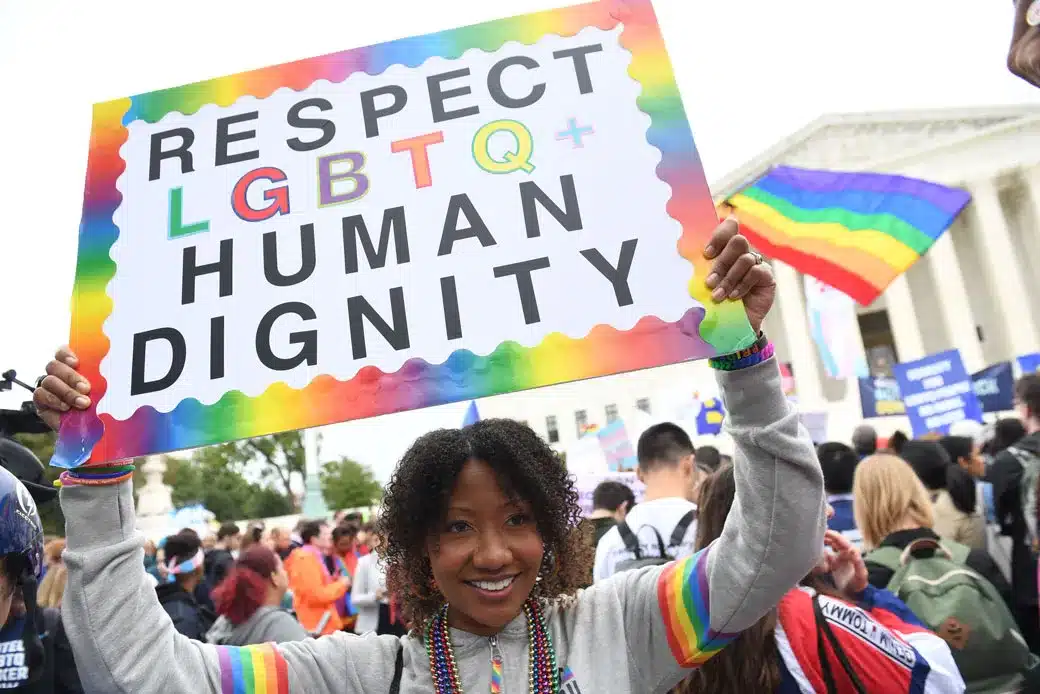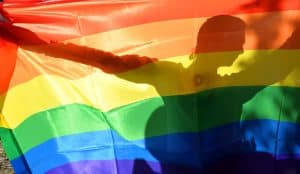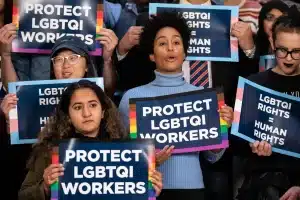The fight for LGBTQ+ legal rights and protections has seen significant progress over the past few decades. As we navigate through 2024, it is crucial to understand the current state of LGBTQ+ rights globally, as well as the specific legal frameworks regarding marriage equality, adoption rights, and anti-discrimination policies. This article delves into these areas, highlighting the advancements and ongoing challenges in ensuring equal rights and protections for LGBTQ+ individuals.

Legal Rights and Protections
The legal landscape for LGBTQ+ rights varies significantly across the globe. While many countries have made remarkable strides in recognizing and protecting LGBTQ+ individuals, others continue to enforce discriminatory laws and policies. The legal rights and protections afforded to LGBTQ+ people encompass a range of issues, including marriage and family rights, workplace protections, and freedom from discrimination and violence.
Current State of LGBTQ+ Rights Globally
The current state of LGBTQ+ rights is a patchwork of progress and regression. In 2024, over 30 countries have legalized same-sex marriage, reflecting a growing acceptance of LGBTQ+ relationships. Countries like the Netherlands, Canada, and South Africa have been at the forefront of this movement, setting an example for others to follow. In contrast, regions such as the Middle East and parts of Africa continue to uphold strict anti-LGBTQ+ laws, with countries like Saudi Arabia and Uganda imposing severe penalties, including imprisonment and even death, for same-sex relationships.
Europe has generally been a leader in advancing LGBTQ+ rights, with the European Union implementing comprehensive anti-discrimination laws and many member states recognizing same-sex marriages or civil partnerships. However, even within Europe, disparities exist. Poland and Hungary, for instance, have seen a rise in anti-LGBTQ+ rhetoric and policies, undermining the progress made in neighboring countries.
In the Americas, the situation is mixed. While countries like Argentina, Brazil, and the United States have robust legal protections for LGBTQ+ individuals, others, such as Honduras and Jamaica, continue to struggle with high levels of homophobia and transphobia, often exacerbated by weak legal frameworks and enforcement.
Asia presents a diverse picture. While Taiwan became the first country in Asia to legalize same-sex marriage in 2019, many other nations, including China and Indonesia, have yet to extend similar rights. India, however, made a landmark decision in 2018 by decriminalizing homosexuality, which was a significant step forward for LGBTQ+ rights in the region.

Marriage Equality and Adoption Rights
Marriage equality is one of the most visible and impactful aspects of LGBTQ+ rights. The legalization of same-sex marriage not only provides legal recognition and protection for LGBTQ+ couples but also symbolizes societal acceptance and equality. As of 2024, countries such as the Netherlands, Spain, New Zealand, and Germany have long recognized same-sex marriages, setting a precedent for other nations.
The journey towards marriage equality has been fraught with challenges. In the United States, the Supreme Court’s 2015 ruling in Obergefell v. Hodges was a monumental victory that legalized same-sex marriage nationwide. Similarly, in Australia, a postal survey in 2017 resulted in a decisive “Yes” vote for marriage equality, leading to the subsequent legalization of same-sex marriage by the Australian Parliament.
Adoption rights for LGBTQ+ individuals and couples are another critical area of legal protection. In many countries where same-sex marriage is legal, LGBTQ+ couples also have the right to adopt children. For instance, Sweden, Canada, and the United Kingdom allow same-sex couples to adopt on the same terms as heterosexual couples. This legal recognition ensures that children in LGBTQ+ families have the same protections and rights as those in heterosexual families.
However, adoption rights remain a contentious issue in many parts of the world. In countries like Italy and Japan, while same-sex partnerships may be recognized, adoption rights for LGBTQ+ couples are still restricted. This inconsistency highlights the ongoing struggle for full legal equality for LGBTQ+ families.
Anti-Discrimination Laws and Policies
Anti-discrimination laws and policies are essential for protecting LGBTQ+ individuals from prejudice and violence. These legal frameworks prohibit discrimination based on sexual orientation and gender identity in various areas, including employment, housing, education, and public services.
Countries like Canada, Australia, and the United Kingdom have comprehensive anti-discrimination laws that explicitly include protections for LGBTQ+ individuals. For example, Canada’s Human Rights Act and the UK’s Equality Act provide robust protections against discrimination and harassment based on sexual orientation and gender identity.
In the United States, while there is no federal law explicitly prohibiting discrimination based on sexual orientation or gender identity, significant progress has been made through court rulings and state-level legislation. The Supreme Court’s 2020 decision in Bostock v. Clayton County extended Title VII of the Civil Rights Act to include protections against workplace discrimination for LGBTQ+ individuals. Additionally, over 20 states and numerous municipalities have enacted their own anti-discrimination laws that include LGBTQ+ protections.
Despite these advancements, anti-discrimination protections are not universal. In many countries, LGBTQ+ individuals still face legal and social discrimination. For instance, in Russia, the so-called “gay propaganda” law prohibits the dissemination of information about LGBTQ+ relationships to minors, effectively marginalizing the community and fostering an environment of intolerance. Similarly, in countries like Nigeria and Malaysia, laws criminalizing same-sex relationships perpetuate discrimination and violence against LGBTQ+ individuals.

Conclusion
The legal rights and protections for LGBTQ+ individuals have seen significant advancements over the past few decades. The current state of LGBTQ+ rights globally is a mix of progress and challenges, with some countries leading the way in recognizing and protecting LGBTQ+ individuals, while others continue to enforce discriminatory laws and policies. Marriage equality and adoption rights have been pivotal in ensuring legal recognition and protection for LGBTQ+ families, while anti-discrimination laws and policies are essential for safeguarding against prejudice and violence.
As we move forward in 2024, it is crucial to continue advocating for comprehensive legal protections for LGBTQ+ individuals worldwide. By understanding the current state of LGBTQ+ rights, recognizing the achievements, and addressing the ongoing challenges, we can work towards a more inclusive and equitable world for all.
For more stories like this, please visit here



